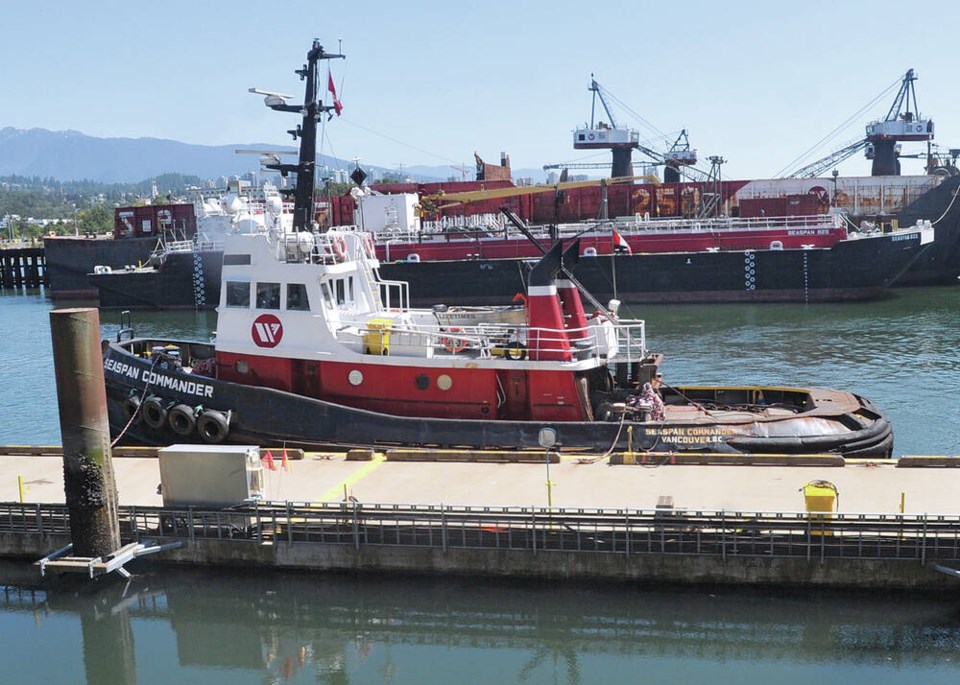Approximately 1,000 unionized workers are back on the job at Vancouver Shipyards in North Vancouver this week after a tentative end to a strike that resulted in a seven-week work stoppage.
Unionized trades at the shipyard and at Vancouver Drydock returned to work Monday (Oct. 17) after pickets came down at the entrance to the shipyard on McKeen Avenue.
Unionized workers at the shipyard and the drydock were not on strike themselves, but had refused to cross the pickets, set up by striking tugboat captains and engineers, since the end of August.
According to statements put out by both Seaspan and the Canadian Merchant Service Guild, the two sides reached a tentative settlement for a new collective agreement on Friday (Oct. 14).
Terms of the deal were not immediately available.
Issues in the strike were said to involve both wage increases and a crewing system introduced by the company.
The unionized tugboat captains were expected to vote on the proposed contract deal this week.
The union’s last contract expired in October 2019.
The labour dispute effectively shut down work at the shipyard and drydock for almost two months, bringing work on two massive federal joint support ships for the navy and a Coast Guard science vessel to a halt. Repair work that had been scheduled at Vancouver Drydock also had to be cancelled or rescheduled.
The deal also comes three weeks after a B.C. Supreme Court justice rejected an application by Seaspan that would have prevented the tugboat captains from setting up picket lines at the entrances to their shipyard and drydock operations in North Vancouver.
In court documents, the companies had argued that while they are owned by the same parent corporation, the shipyard and dry dock are “completely separate from those of Seaspan.”
Pickets were set up to deliberately hinder those operations, causing “economic loss” and “loss to the shipyards’ professional reputation,” the companies had alleged.
Justice George Macintosh rejected that argument, noting peaceful picketing at secondary sites that does not physically block access is protected under freedom of expression in Canada’s Constitution.
Macintosh also noted the close corporate relationships between the tugboat captains’ employer, Seaspan ULC, and the shipyard and dry-dock companies.




